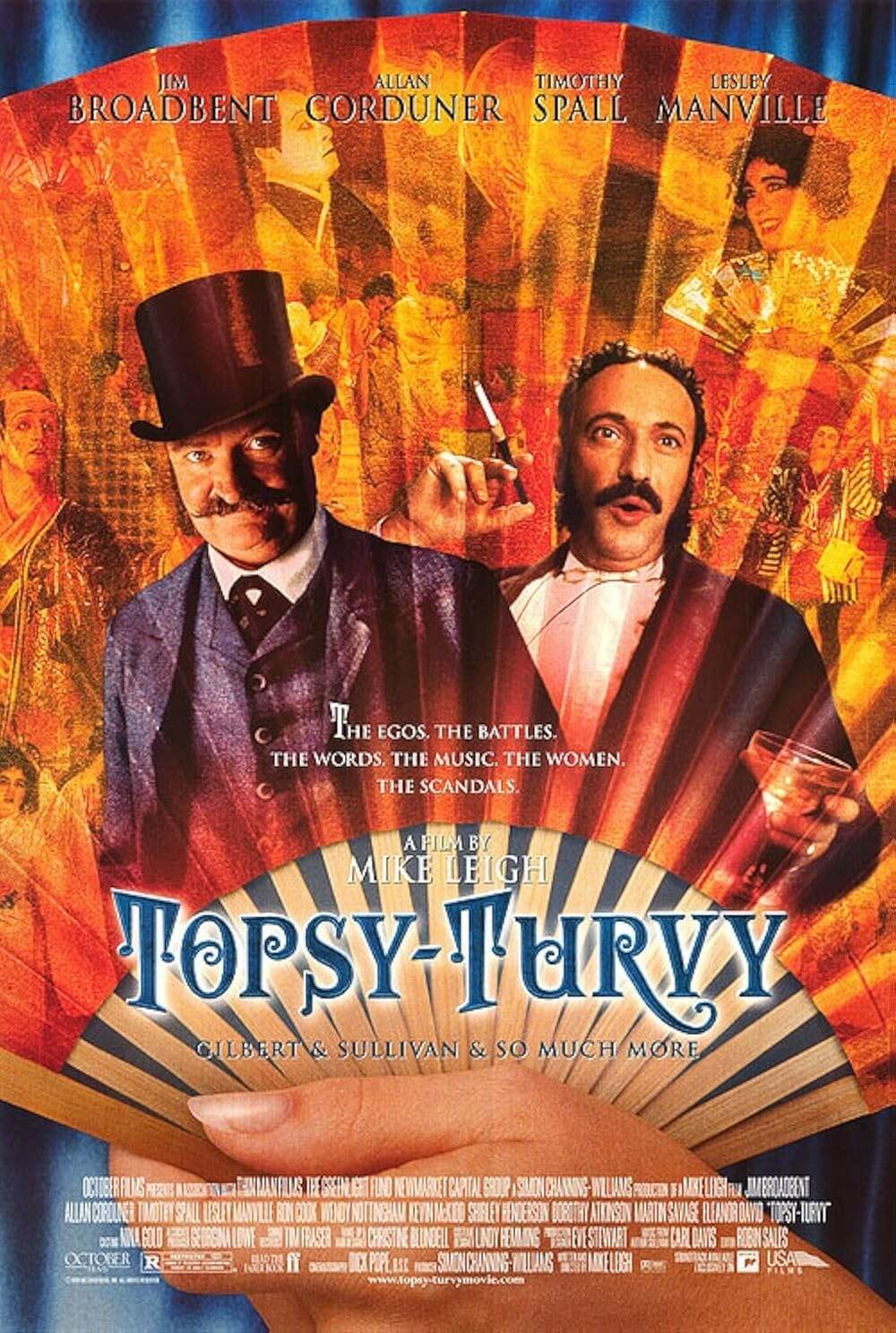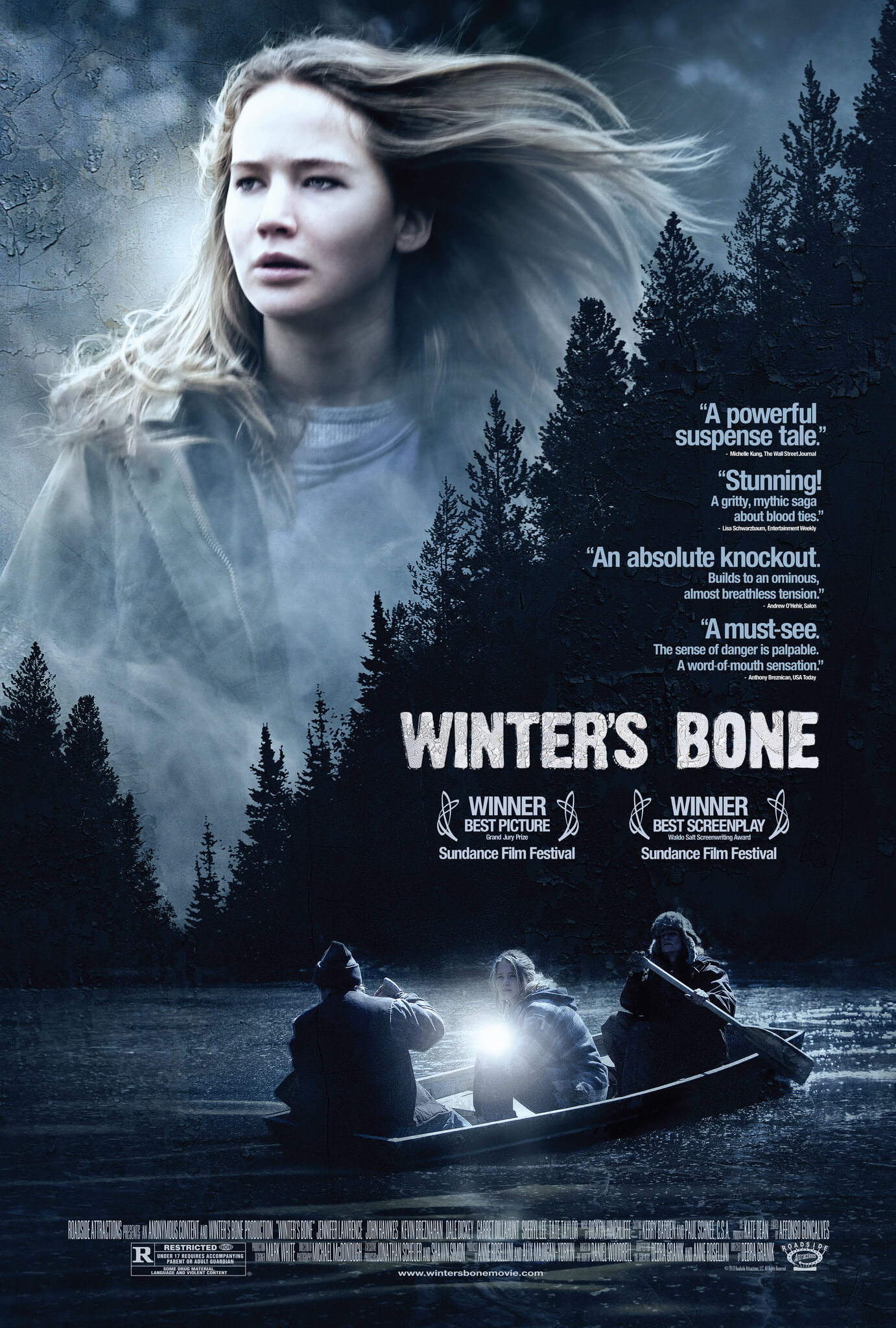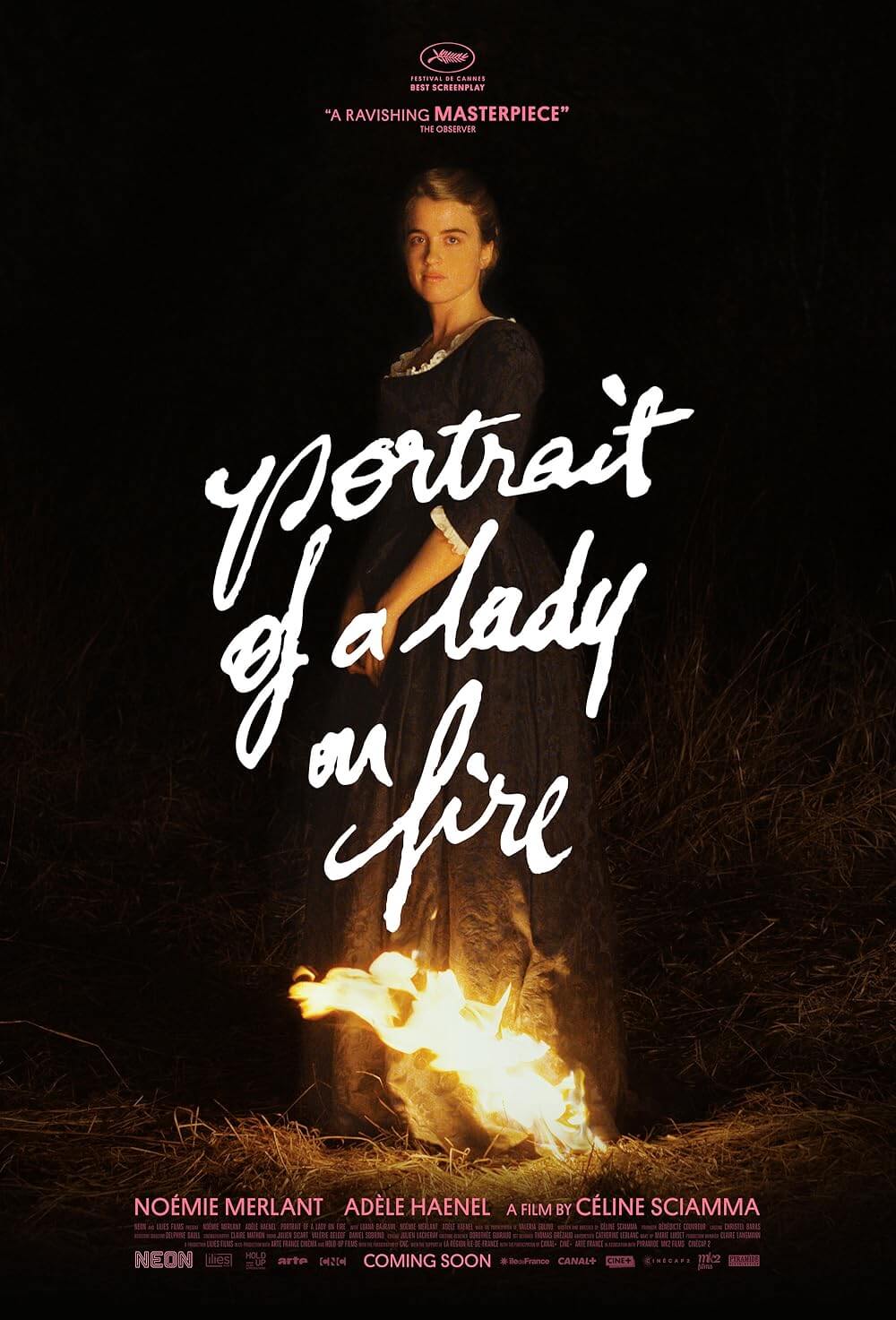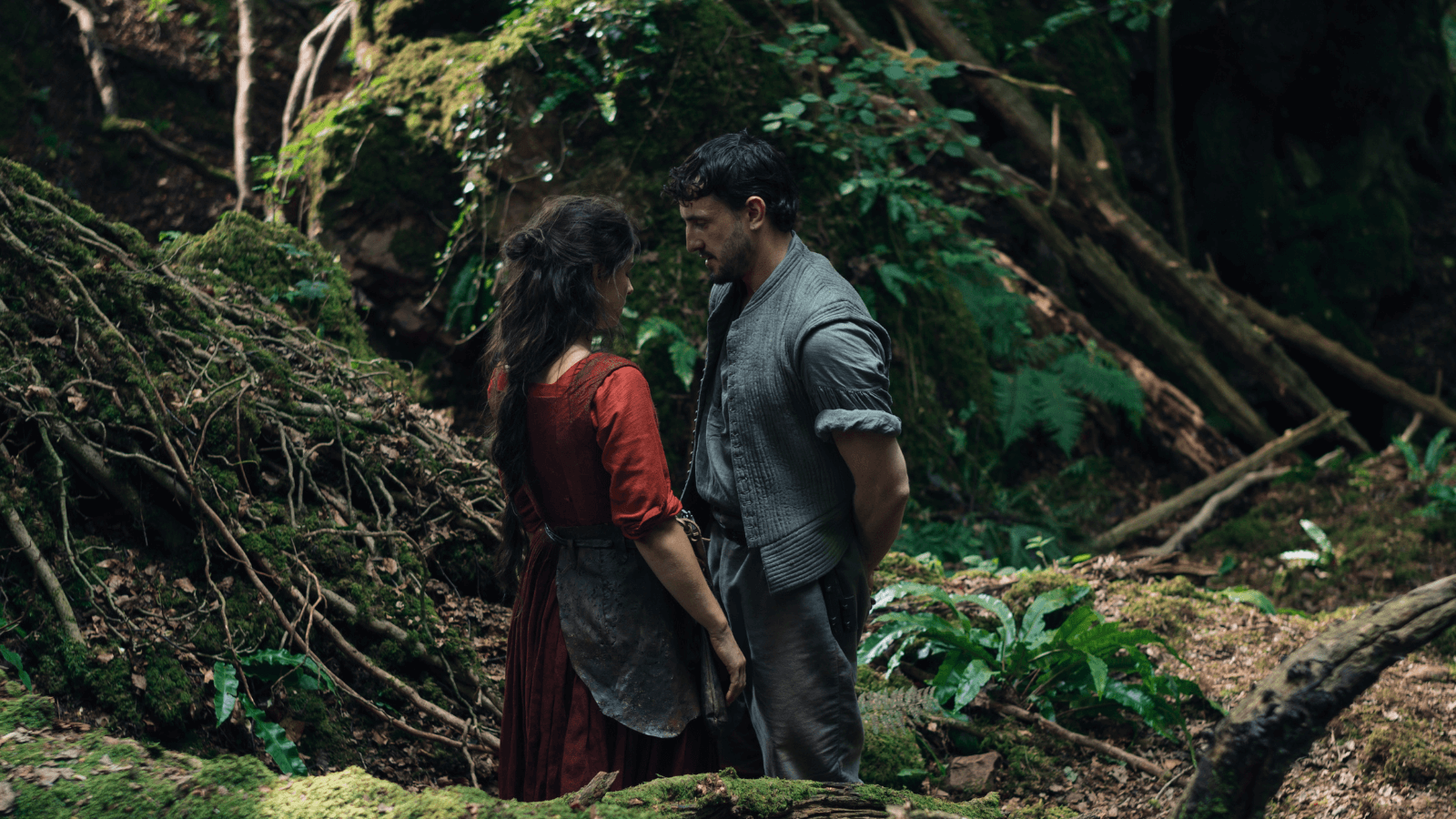
Hamnet
By Brian Eggert |
Note: This review is based on a screening at the Twin Cities Film Festival and was originally published on October 27, 2025.
Chloé Zhao’s Hamnet features undeniably stunning images and impassioned performances from its talented cast, headlined by two Oscar-nominated actors, a primal Jessie Buckley, and an inward Paul Mescal. In fact, everything about the production screams “Oscar contender” at the audience, from its Shakespearian subject matter to its self-important tone of aching, labored poetics, both in its evocation of love and loss, as well as its portrait of artistic drive and catharsis. The film is based on the 2020 best-selling book by Maggie O’Farrell, which earned several major literary prizes and even a stage adaptation in 2023. Zhao and O’Farrell adapted the material for the screen, applying an impressionistic treatment of narrative and character so that the viewer must feel their way through much of the experience. Each choice propelling Hamnet feels aimed at devastating viewers and winning awards, and that’s part of why it never lands.
Hamnet’s production endeavors to be aesthetically hypnotic and emotionally potent, with Zhao attempting to evoke her directorial idol and mentor, Terrence Malick. When her camera isn’t trained on actors’ faces in intimate, searching close-ups, it’s pointed upward, looking at the trees and the light streaming through the canopy (see Malick’s The Thin Red Line, 1998). Refreshingly, the camera searches each scene for honest moments, avoiding clunky exposition or other obligatory tropes found in costume dramas of this kind. Zhao conveys a world beyond what viewers typically associate with stately pictures such as Shakespeare in Love (1998) or All Is True (2018), with a film immersed in a formative love story that ultimately led to some of the greatest works of stage drama ever written. However, Zhao’s approach feels forced, like she’s desperately trying to convince her audience to hand over their collective heart so she can drop it into a blender. I could see what she was up to, and she never convinced me to hand it over.
The faux resonance begins from the start with an angelic choral score and a roving camera that pans over a lush forest. The frame settles on Agnes (Buckley), an intuitive type with an innate understanding of the natural world, including a knowledge of herbs and homeopathic remedies. She lies amid the mossy roots of an enormous tree, next to a bottomless hole that has all manner of symbolic import. When Mescal’s Will Shakespeare first spots her from a window, he’s teaching her brothers Latin to repay his father’s debts. Drawn to her with almost elemental purpose, Will kisses her before ever knowing her name. Almost immediately, they scurry off into the woods and make love in secret, with Agnes providing some choice lines that end up in Will’s writing—like a bad musical biopic where someone says the line that inspires a hit song. However, neither of their families approves of their coupling. Will’s mother, Mary (Emily Watson), won’t allow her son to wed Agnes, who is rumored to be a witch’s daughter, while Agnes’ brother, Bartholomew (Joe Alwyn), sees Will as a “pasty-faced scholar.”
Agnes and Will have a casual familiarity and humor that feels modern and authentic. This soon extends to their children when, inevitably, against all protests from their families, the couple has three little ones—in birthing scenes that boast plenty of screaming, but not one umbilical cord or placenta, suggesting Zhao’s desire for authenticity has limits. Before long, Anges’ contentment in the country and Will’s restlessness as a playwright clash, prompting the Bard to visit London for long periods to develop his plays, while his wife and children remain home, lonely and longing for him. After a few years and some success, he moves them closer to London, in Stratford-upon-Avon. That’s where the family experiences the loss of their son, Hamnet (Jacobi Jupe), the child closest to Will, whose death inspires him to write a play that will convey their loss to the world for centuries.
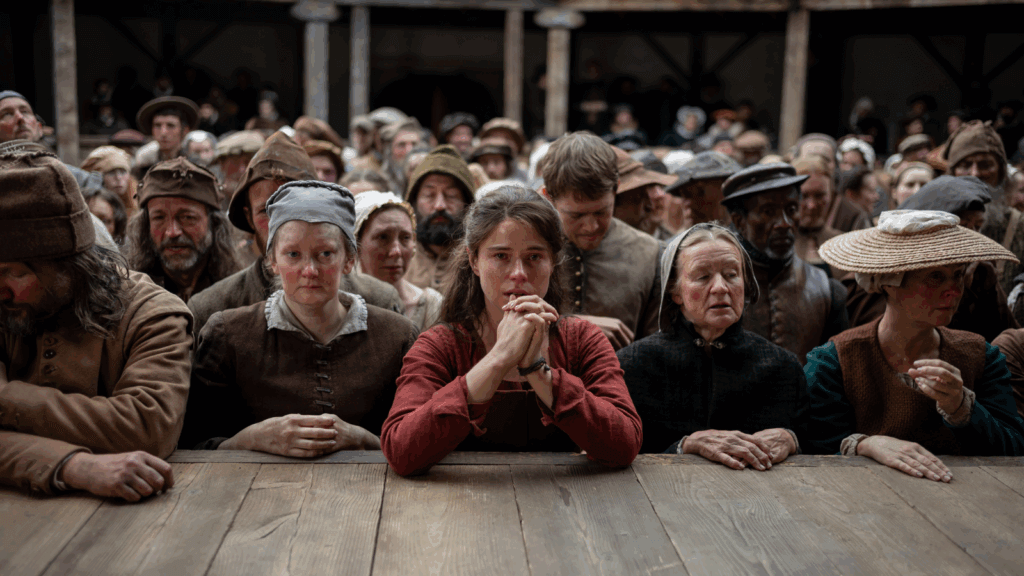
Unfolding at a watch-checking pace, Hamnet is propelled by one obvious choice after another, as though every expression derives from a raw nerve, and all emotions have the same intensity. Buckley’s performance feels elemental. Her Agnes is unbridled by social decorum or gender roles, wearing every emotion on her face in a manner recalling her characters from Men (2022) and Women Talking (2022). She’s exceptional in a late grieving scene that, thanks to her guttural wailing, will probably win her an Oscar. Mescal once again plays a delicate, searching role that aligns with recent turns in Aftersun (2022), All of Us Strangers (2023), Gladiator II (2024), and this year’s The History of Sound—all roles that require him to be wounded and sensitive. Together, they’re at once irresistible yet altogether predictable in their performances. You couldn’t imagine other actors in these roles, yet their presence is so unsurprising that it feels like typecasting. Instead, the performance of the movie belongs to Jupe, whose older brother Noah plays Hamlet on stage (an opening title tells us Hamlet and Hamnet were considered the same name in sixteenth-century England).
Hamnet is a film teeming with distracting visual and aural choices that reflect Zhao’s recent self-conscious style, which reaches for emotional grandiosity and Malickian transcendence, but ultimately feels hollow. The same can be said of her efforts on Nomadland (2020) and the MCU’s Eternals (2021), the former having earned her an Oscar for Best Director. However, her early features, Songs My Brothers Taught Me (2015) and The Rider (2017), feel less affected and self-important. Polish cinematographer Łukasz Żal (The Zone of Interest, 2023) shoots on the ALEXA 35 camera, which lends Hamnet an anachronistic digitized appearance, far removed from the usual Hollywood period piece look. The effect hopes to make these centuries-old situations feel real and contemporary, enveloping the viewer in mesmeric and relatable imagery. Consider the climactic sequence in Hamnet where Agnes travels to London to see the play named after her son. She watches, shattered and confused, trying to make sense of what Will has done. When the play ends, Zhao sets what should be an overwhelming moment to Max Richter’s “On the Nature of Daylight.” But this piece of music, written in 2004, is so overused in movies and television that it now registers as manufactured emotional depth and neutralizes the dramatic intent with its presence.
Hamnet is rife with dramatic clichés and overfamiliar imagery. Even Zhao’s director’s statement in the press notes rings with bad teen poetry energy, complete with mixed metaphors and literary banalities that strain to find some measure of deep-seated profundity: “I had truly experienced what it feels like to live with an open heart in the eye of a storm,” she says of reading O’Farrell’s book. Now imagine a whole film in that voice. Zhao’s desperation to convey what it feels like to fall in love and experience unfathomable loss reads as a pressing neediness, as though she’s laboring to underscore the ache and bring the viewer to tears. Rather than realism, she achieves contrived and unnaturally dramatic scenes that, despite Hamnet’s push toward emotional immediacy, come across as false.
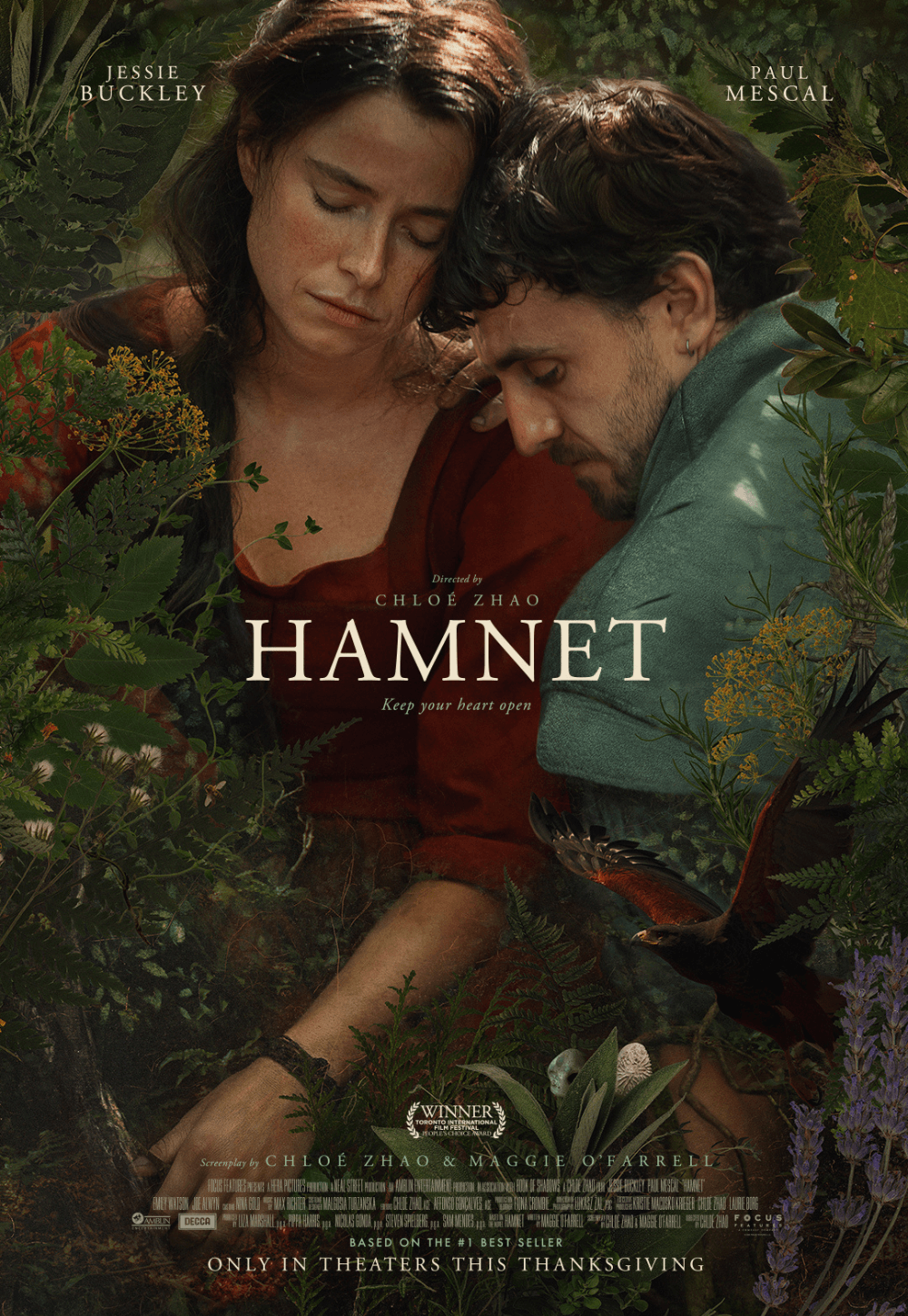
Thank You for Supporting Independent Film Criticism
If the work on DFR has added something meaningful to your love of movies, please consider supporting it.
Here are a few ways to show your support: make a one-time donation, join DFR’s Patreon for access to exclusive writing, or show your support in other ways.
Your contribution helps keep this site running independently. However you choose to support the site, please know that it’s appreciated.
Thank you for reading, and for making this work possible.
Brian Eggert | Critic, Founder
Deep Focus Review


